 david coombe history
david coombe history
This is an index to narrative articles on S.T. Gill's life and work from his arrival in South Australia in 1839 up to his early time at the Victorian gold rush in 1852-53.
Narrative articles are listed in approximate chronological order with links to the web page. Many of the pages also have forward and backward narrative links.
STATUS : COMPLETE
A list of 33 narrative articles (web pages) for the S T Gill project in chronological order.
S T Gill's life and times in South Australia, 1839 to 1842. A narrative, with familial, economic and art scene context for Gill's early years. Highlighting Gill's clients and connections such as John Horrocks, Governor Gawler and posted army officers.
Article type: Narrative
S. T. Gill - his life and times in South Australia, 1843 to 1844. The James Allen connection. The coming of copper and George French Angas.
Article type: Narrative
1844~. Set of 8 wash drawings of South Australian scenes - natural, Aboriginal, rural and the built environment, corresponding with subjects in J.F. Bennett's book. Plus other related works.
Article type: Catalogue, Narrative
Lieutenant John Napier Magill (1819-1848), 96th Regiment, posted to South Australia 1842-1846. Magill was a flautist and artist, painting views of Flinders Street barracks. Gill watercolours for Magill and Captain W.D. Chard.
Article type: Catalogue, Narrative, Analysis

S. T. Gill was in the Barossa sketching for the Angas family from 29 October to 4 November 1844. I identify some works as well as influences on Angas publications 'South Australia Illustrated' and 'Barossa Range and its neighbourhood'.
Article type: Catalogue, Narrative, Analysis

On 16 December 1844 explorer Edward John Eyre departs Adelaide on the barque 'Symmetry' for England, taking with him paintings by Gill.
Article type: Catalogue, Narrative
Gill portrayed the Aboriginal elevated mortuary platform in his 'Native Sepulchre' images. Also included are works by E.C. Frome, G.F. Angas and W.A. Cawthorne. Date range: 1840 to 1870s.
Article type: Subject
January - June 1845. F.R. Nixon - a somewhat mischievous artist - etched and printed 12 Views of Adelaide in 1845, priced 21 shillings. A few months later, when controversy erupted, James Allen said they weren't worth 3 farthings!
Article type: Narrative

WA Cawthorne (1824-1897): school teacher, amateur artist, documenter of Aboriginal culture. George French Angas' 'South Australia Illustrated'. The relationship with Gill, his art master from February 1845.
Article type: Catalogue, Narrative, Analysis
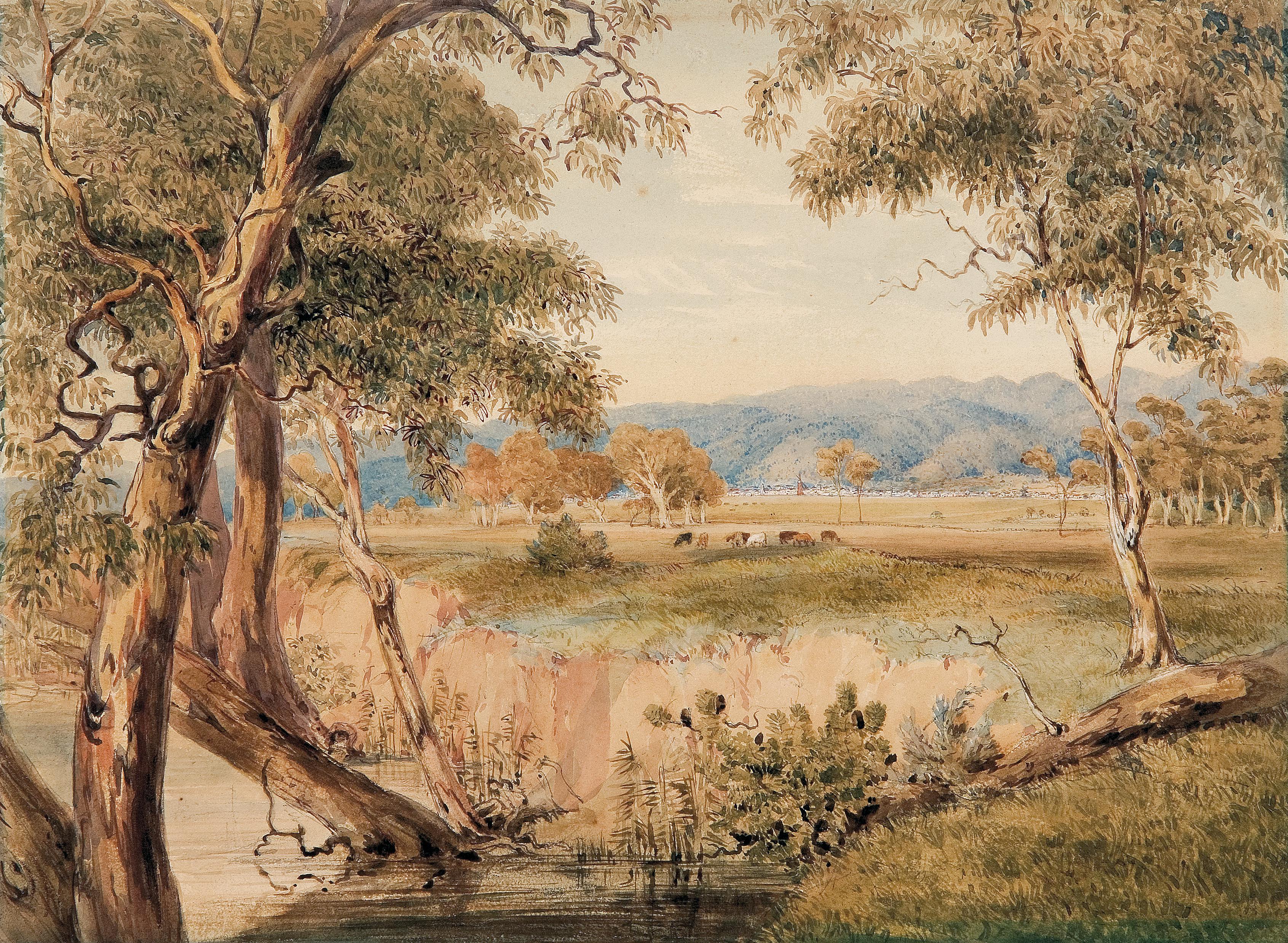
1844-45. George French Angas made a splash in South Australia in two visits (interrupted by a trip to New Zealand). He left on 2 July 1845, a fortnight after his art exhibition and its associated controversy.
Article type: Catalogue, Narrative, Analysis
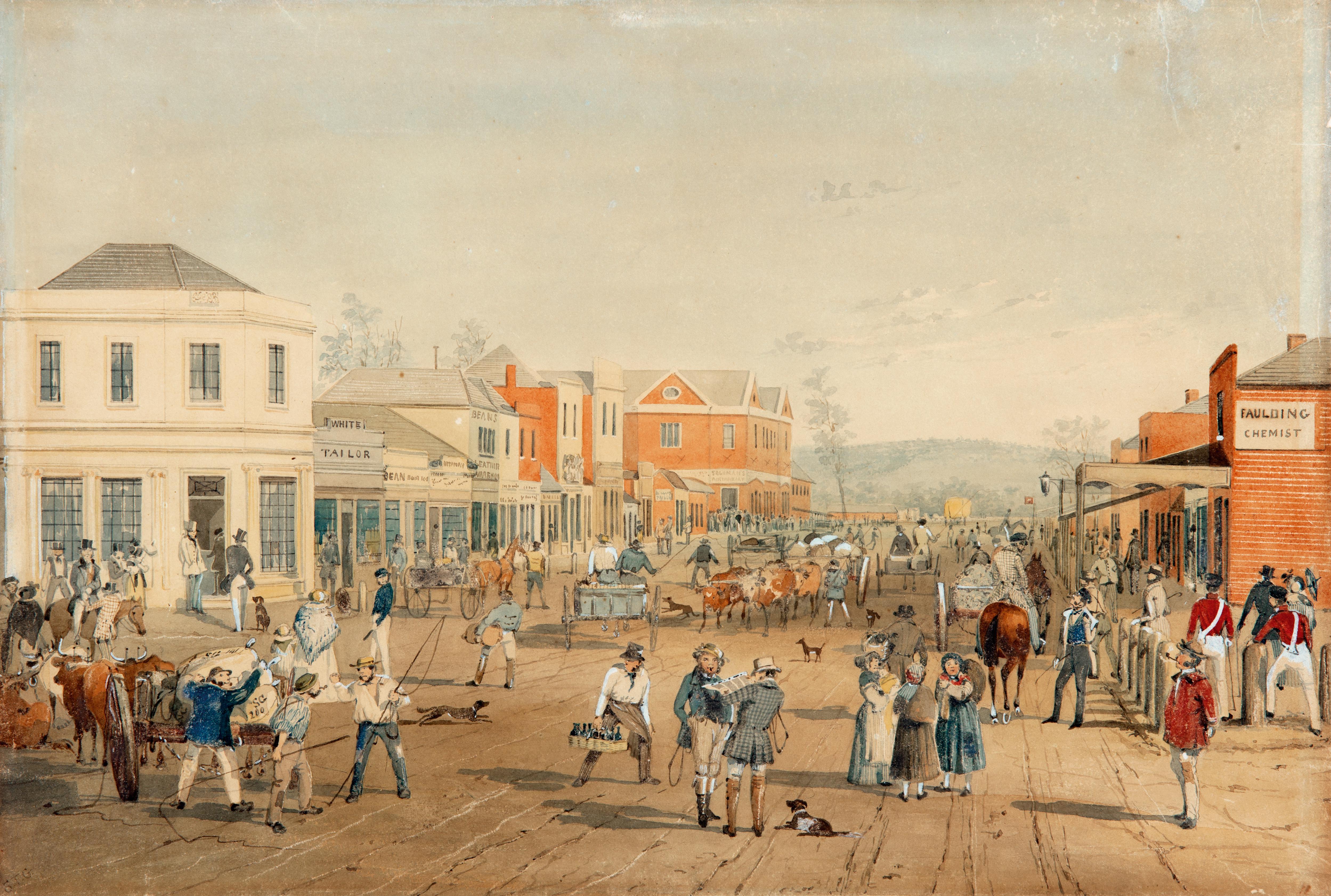
September-November 1845. Series of watercolours and wash drawings commissioned by James Allen for his 1846 promotional lecture tour of England.
Article type: Catalogue, Narrative, Analysis
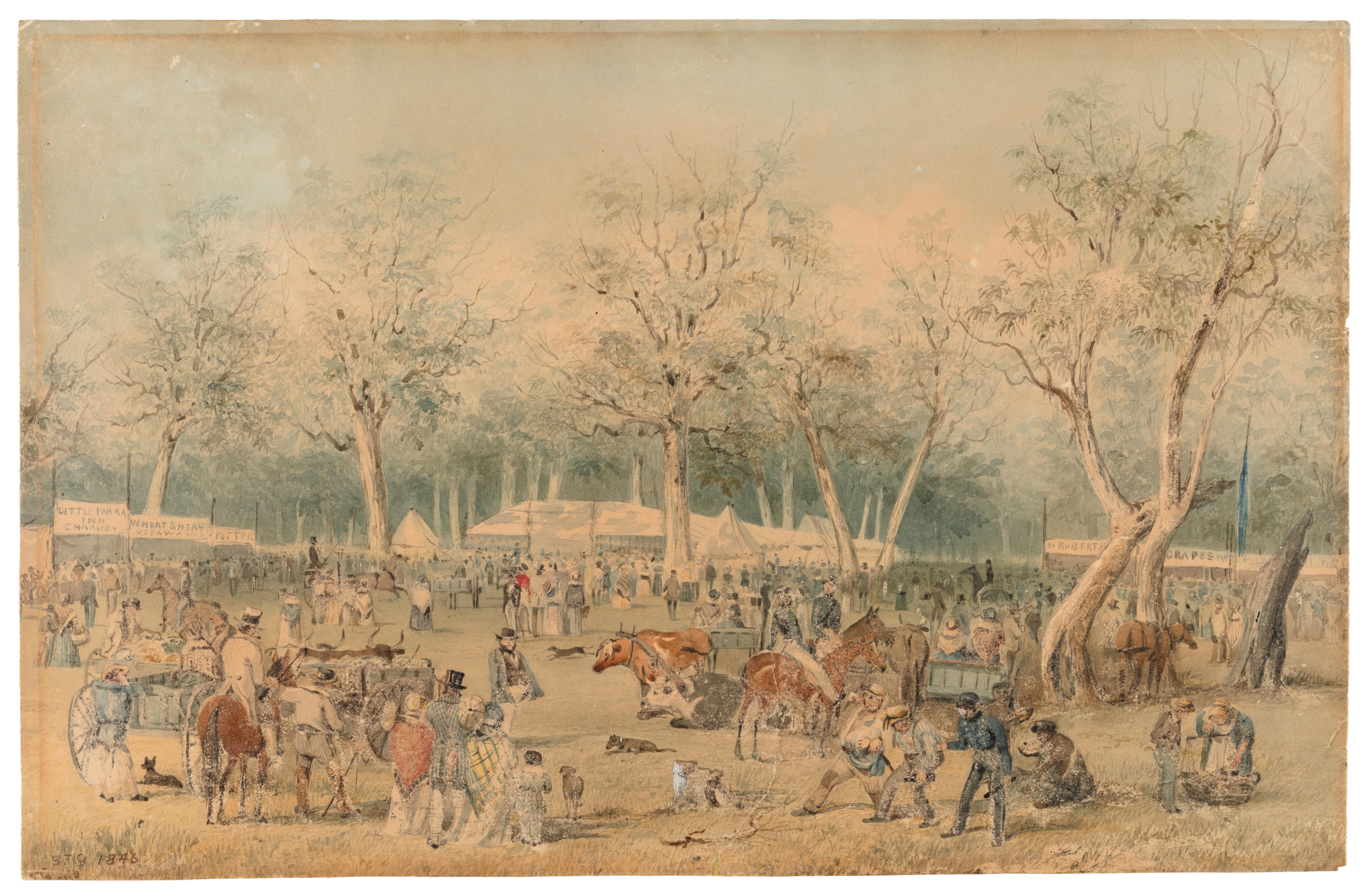
After the commission for James Allen and South Australian Company, in November 1845 Gill briefly trialled Daguerreotype (photography). Little is known about what he did next, up until the time he left on Horrocks' expedition in July 1846.
Article type: Catalogue, Narrative, Analysis
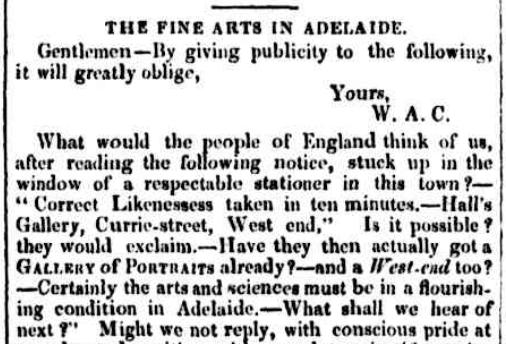
Daguerreotype and early photography in 1840s South Australia: William Little, Robert Hall, Robert Norman, S T Gill, George Heseltine and G B Goodman. Captain Lucas of the French 'Oriental-Hydrographe' expedition and D N Joubert.
Article type: Narrative
In July 1846 Gill gave a supper for friends before leaving on John Horrocks' expedition, this being the subject of an oddly lengthy newspaper report. Featuring Australia's first camel, a dubious newspaper reporter and unidentified expeditioners.
Article type: Narrative
S.T. Gill accompanied John Ainsworth Horrocks' small expedition from July to September 1846. This article focusses on Gill's artistic work on the expedition, rather than his exhibition works after returning.
Article type: Catalogue, Narrative
September 1846 to January 1847. Gill develops his series of 33 works of the Horrocks' expedition, raffled and shown at the February 1847 Exhibition of Pictures.
Article type: Catalogue, Narrative, Analysis
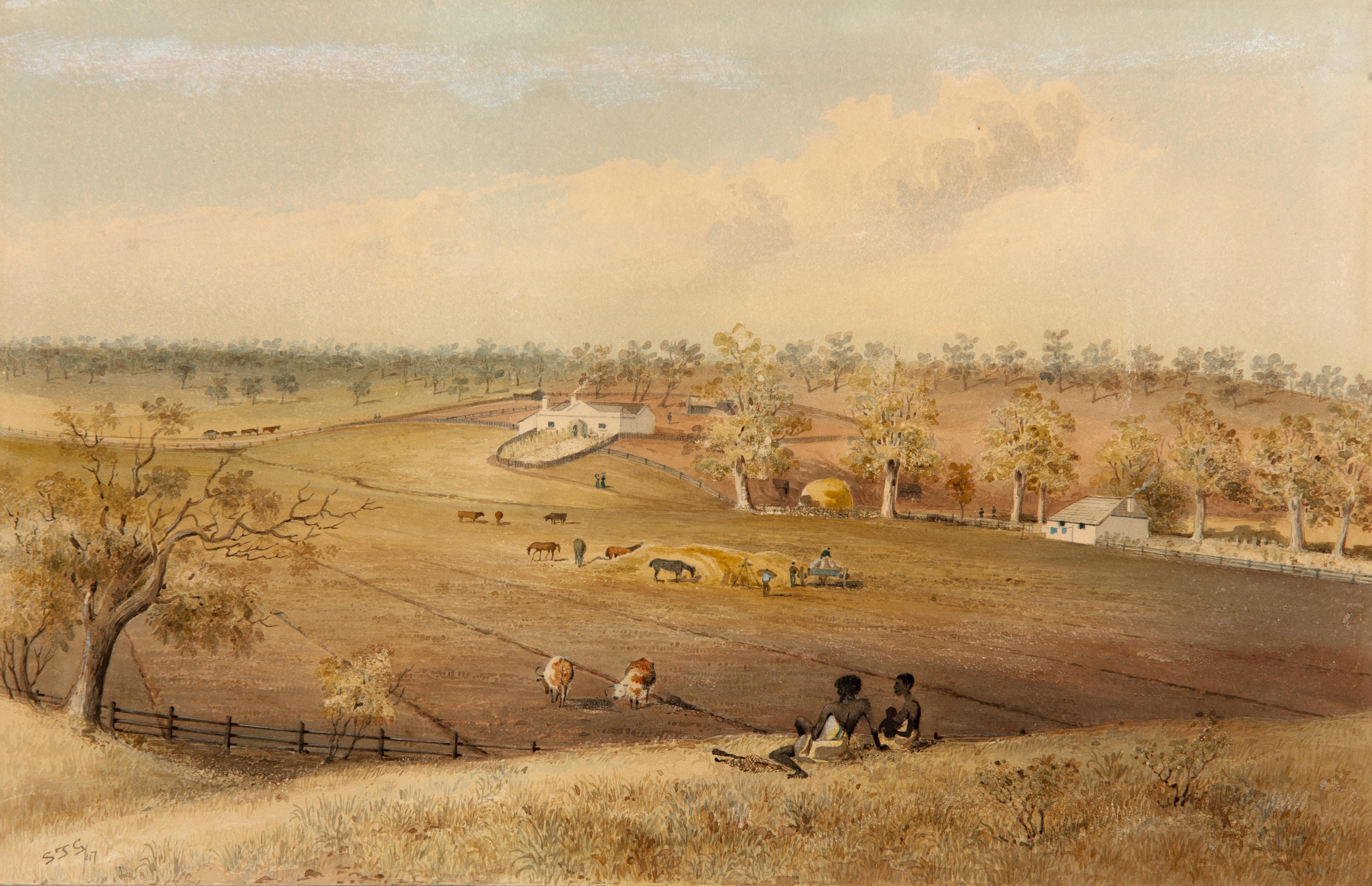
An overarching outline of 1847 with links to catalogue articles on Gill's major efforts that year. This article also includes 1847 works not catalogued elsewhere.
Article type: Catalogue, Narrative
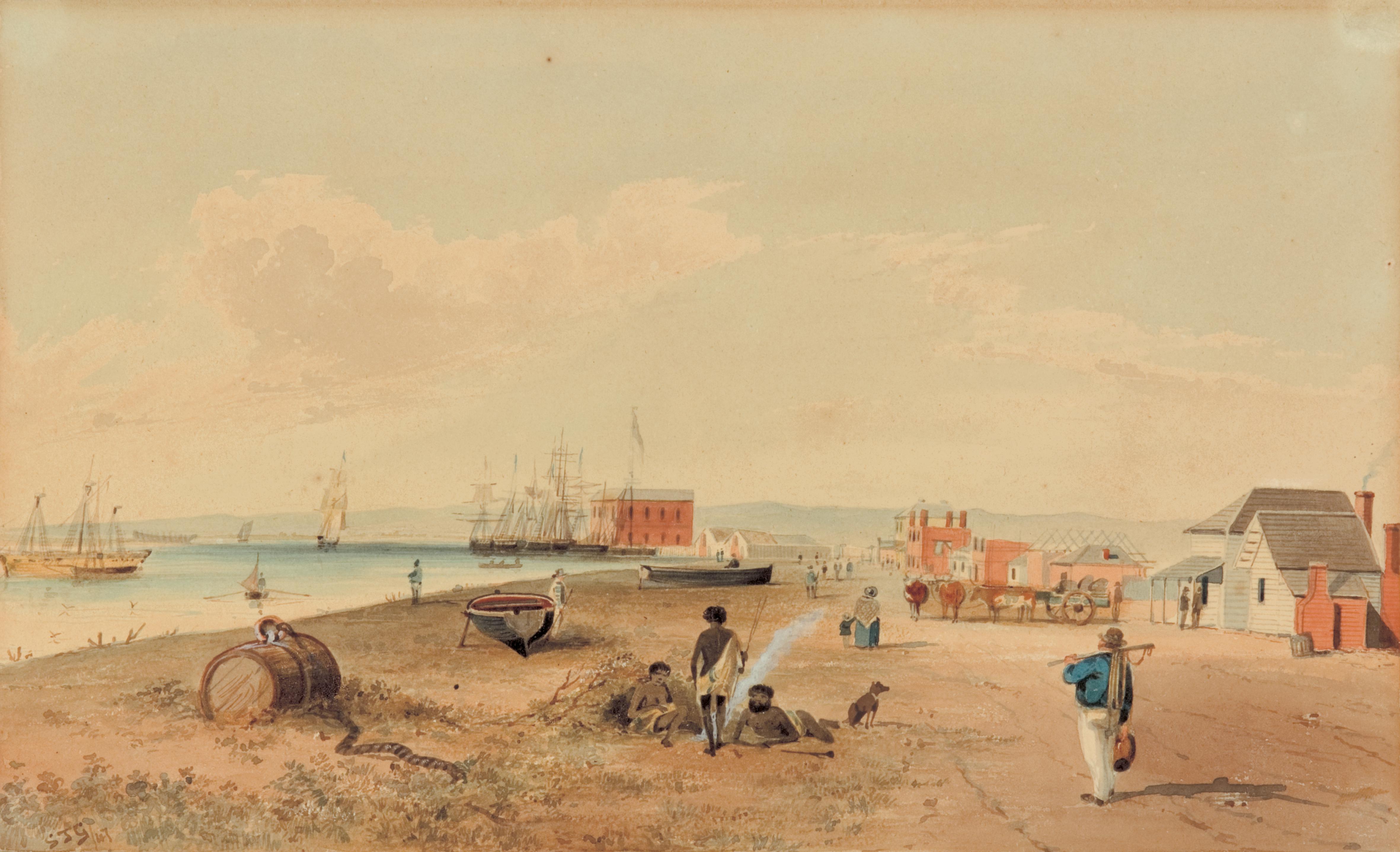
'An Exhibition of Pictures, principally the work of Colonial Artists' ran over a week from Thursday 11 February 1847 and showed 178 pictures. Gill was the most prolific exhibitor with 62 entries, including his 33 work Horrocks series.
Article type: Catalogue, Narrative, Analysis
1846/February 1847. Five vignettes showing activities of Aboriginal people. For George Hamilton who over-painted two of the pictures. Extensive reverse notes transcribed.
Article type: Catalogue, Narrative, Analysis
February-April 1847. To illustrate Charles Sturt's book 'Narrative of an Expedition into Central Australia ...'. Watercolours (known and unknown) by Gill.
Article type: Catalogue, Narrative, Analysis

In April 1847 S.T. Gill sketched the Burra Burra Mine and its township Kooringa on behalf of the South Australian Mining Association (SAMA). He made a set of seven views. Several SAMA proprietors ordered copy sets.
Article type: Catalogue, Narrative
Winter 1847. 'The Seasons and The Months'. A series originally of 16 pictures commissioned by Lieutenant John Roe. 'July' is missing. Key to redating Gill's work.
Article type: Catalogue, Narrative
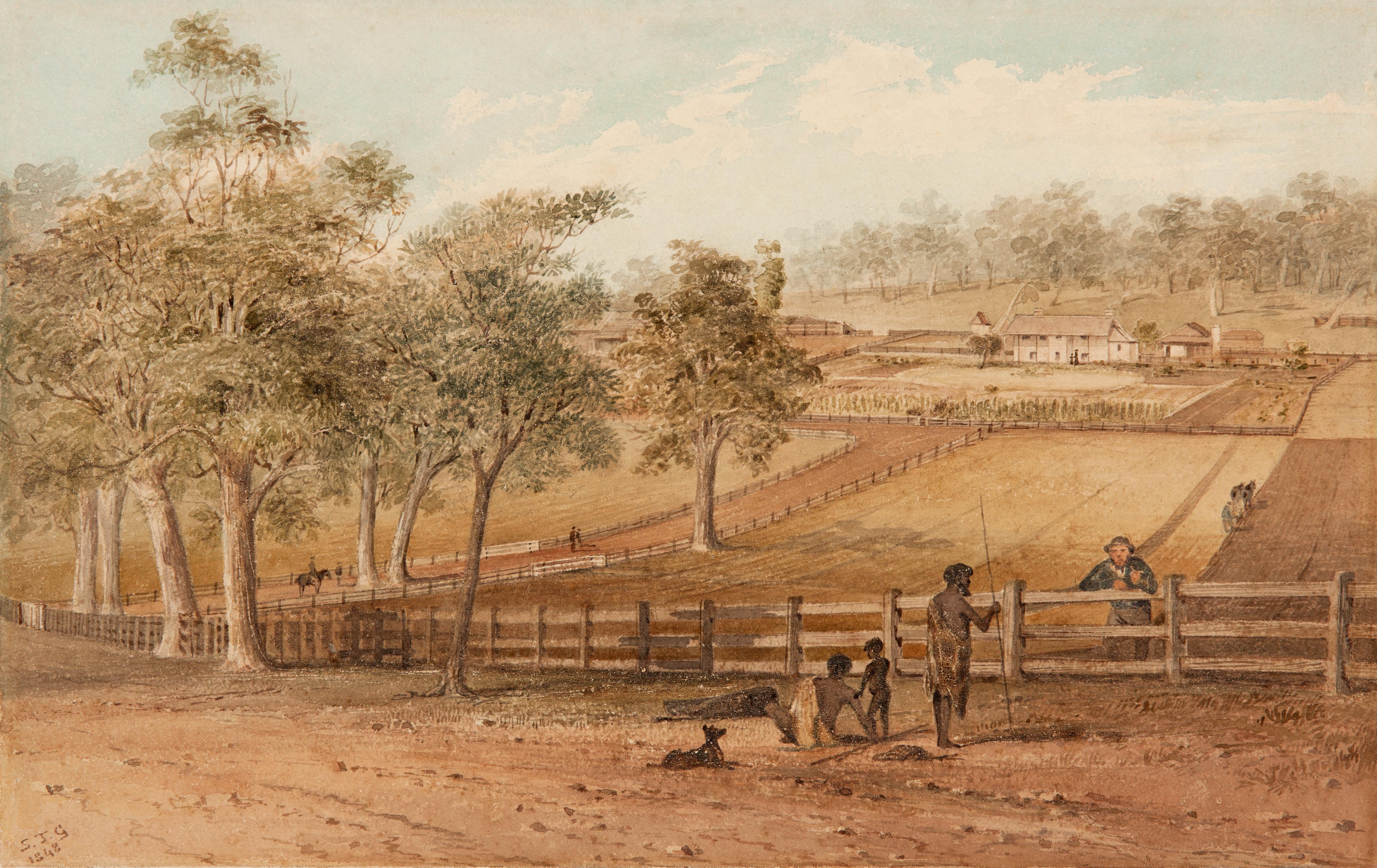
1848. Second exhibition of artists. Economic depression in Britain impacted Gill's moneyed clients. But year end heralded a broader market for Gill's works with the arrival in Adelaide of lithographers Penman and Co.
Article type: Catalogue, Narrative, Analysis
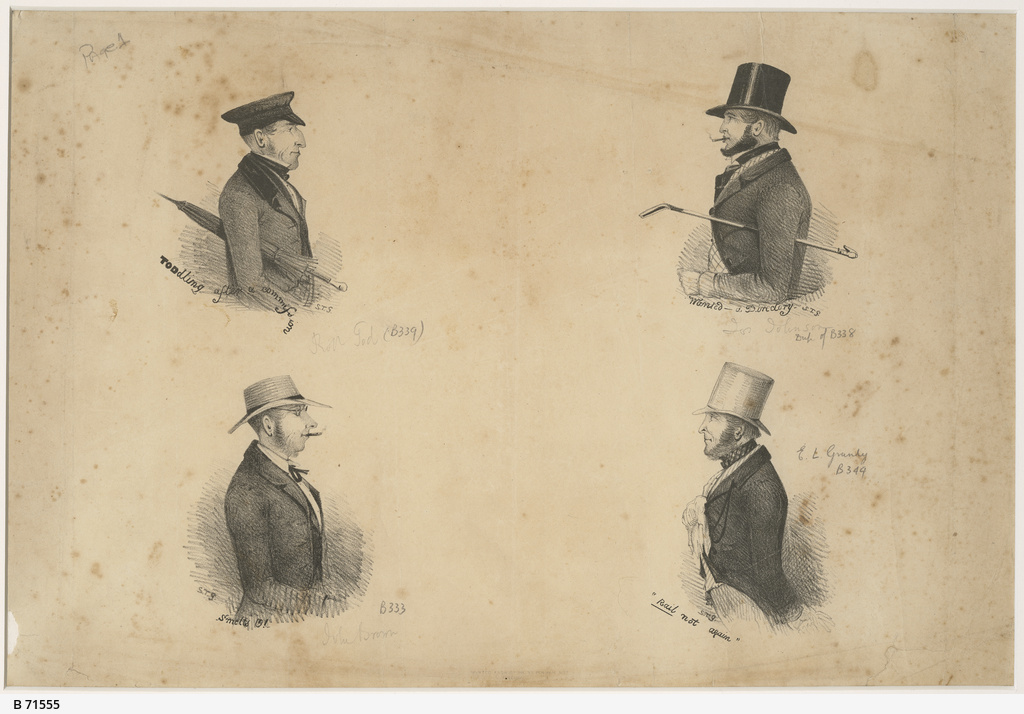
December 1848 - August 1849. Lithographers Penman & Co.; J.A. Gilfillan; T. Rider; Gill's 'Heads of the People' in May, July, August 1849.
Article type: Catalogue, Narrative

September 1849 - February 1850. Fetes and house paintings. Gill embraced lithography and its larger market, whilst continuing watercolours for clients.
Article type: Catalogue, Narrative
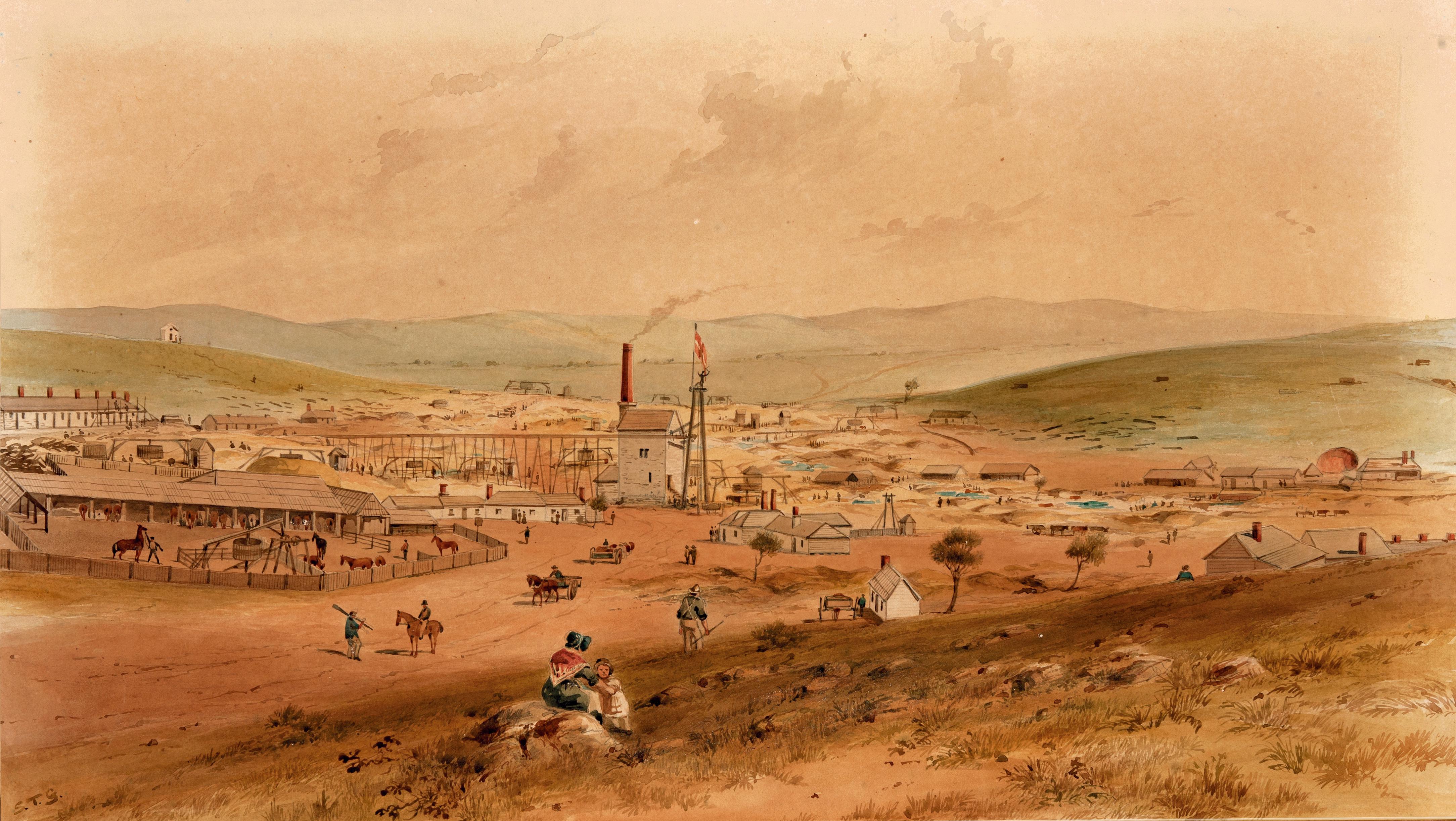
In February 1850 S.T. Gill returned to the Burra Burra Mine and its township Kooringa to refresh images for the South Australian Mining Association (SAMA). Featured: Patent Copper Company's smelting works and Roach's engine-house.
Article type: Catalogue, Narrative
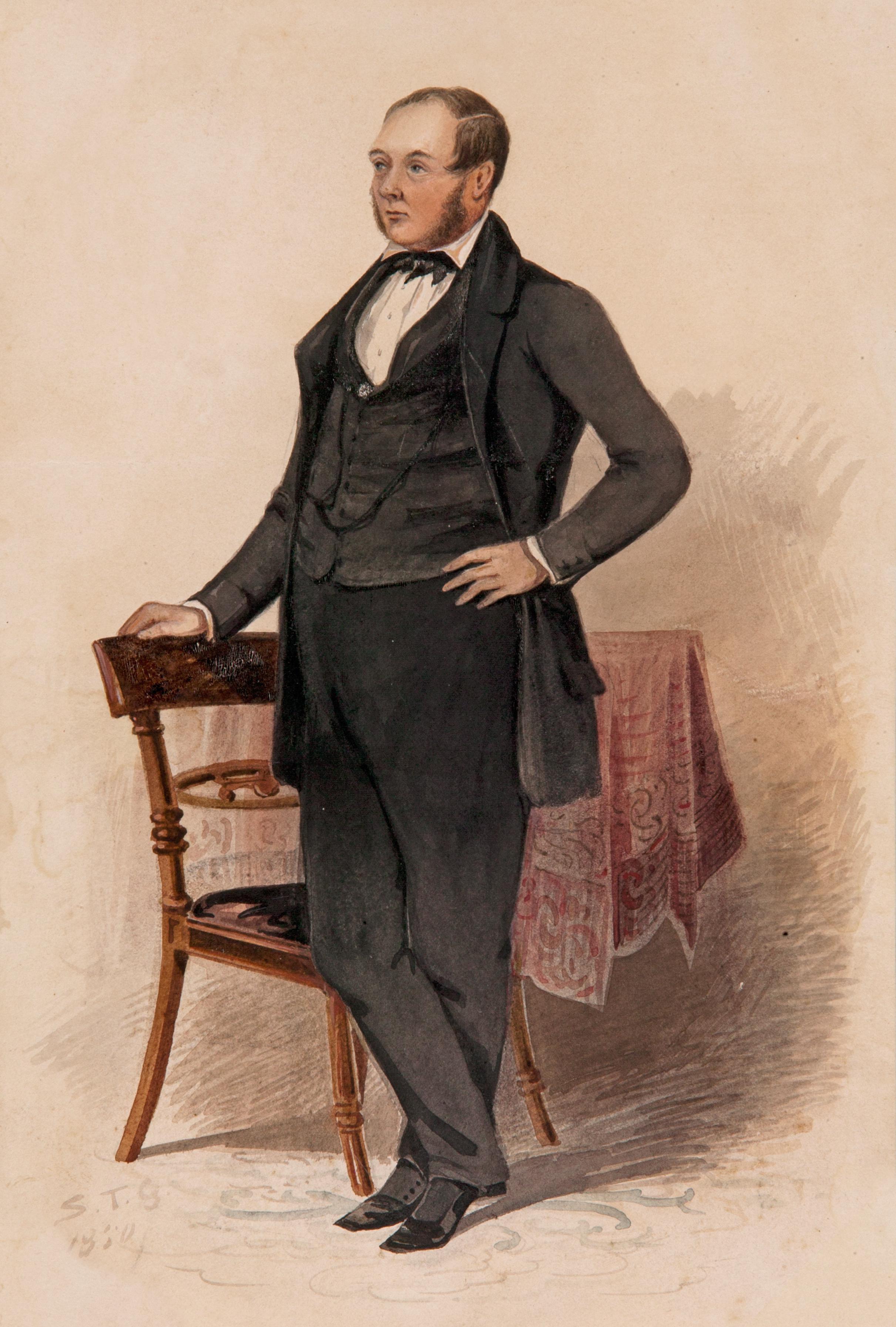
March 1850 to March 1851. Changing fortunes. Prospect House; Gill's Newfoundland dog; competition from oil painters; portraits from Daguerreotypes; Gill's hand injury; financial pressure; William Vansittart's horse portraits.
Article type: Catalogue, Narrative
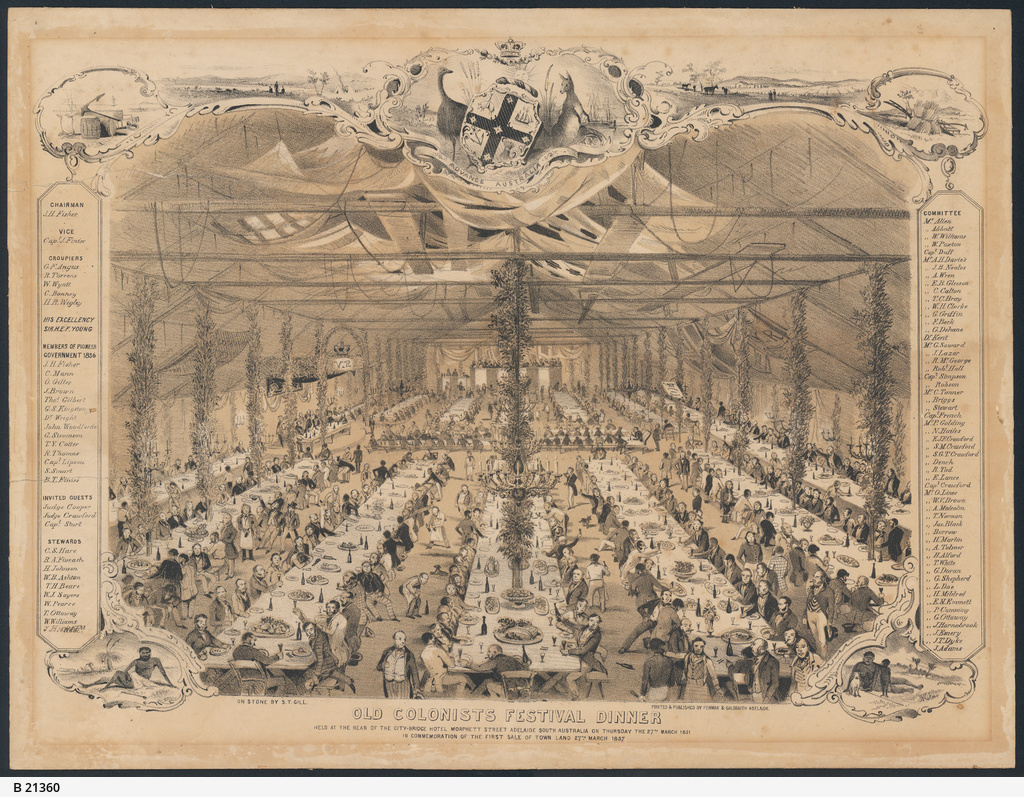
March 1851. The story behind S.T. Gill's cheeky lithograph of the Old Colonists' Festival Dinner.
Article type: Catalogue, Narrative

Gold became the topic of interest in May 1851. Gill insolvent. Series of 3 lithographs of Adelaide's main streets, suggest the view was to the east and gold. Horse portraits. Angas paints NSW diggings.
Article type: Catalogue, Narrative
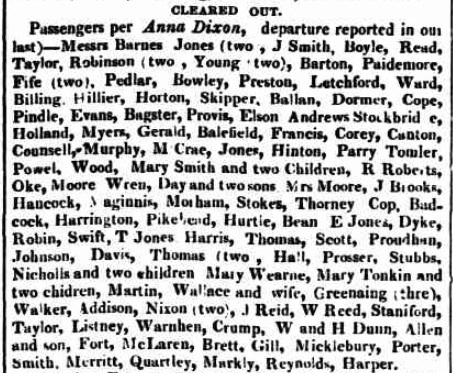
S.T. Gill left South Australia for the Victorian gold rush. This article evaluates evidence for his passage and concludes he likely left with others of a cultural bent aboard 'Anna Dixon', February 1852.
Article type: Narrative, Analysis
S.T. Gill was at the Diggings in June and July 1852, judging by dated works and a newspaper report. He sought a lithographic partnership. There may be only one field sketch extant.
Article type: Catalogue, Narrative, Analysis

In Melbourne Gill completed two series of 24 monochrome diggings lithographs in August and October 1852. George French Angas visits! Large watercolours of Forest Creek and Bendigo. Large coloured lithograph of Forest Creek, March 1853.
Article type: Catalogue, Narrative
The weight of evidence is against Angas' presence at the Victorian diggings. He visited Gill in Melbourne in August 1852 and again used Gill's pictures for his own publication. This further cements the role of Gill as a ghost artist for Angas.
Article type: Catalogue, Narrative, Analysis
David Coombe. Original 3 April 2024. Updated 5 January 20026. | text copyright (except where indicated)
CITE THIS: David Coombe, 2024-2026, S.T. Gill - A Narrative, accessed dd mmm yyyy, <https://coombe.id.au/S_T_Gill/narrative.htm>